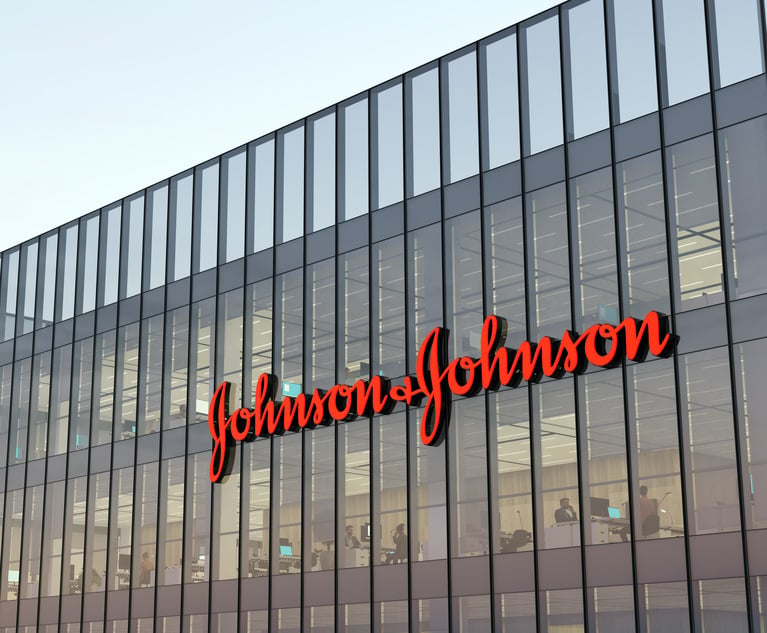Walmart Truck Drivers' $55 Million Unpaid Wages Award Survives at Ninth Circuit
The more than decade-long case seeks to answer an increasingly prevalent question in California courts: When do employers have to pay for workers' time?
January 06, 2020 at 06:04 PM
5 minute read
 Photo: Sundry Photography/Shutterstock.com
Photo: Sundry Photography/Shutterstock.com
A class of Walmart truck drivers is poised to collect tens of millions of dollars in unpaid wages following a federal court ruling, as the courts continue to grapple with when California employers have to pay for workers' time.
The ruling from the U.S. Court of Appeals for the Ninth Circuit comes after more than a decade of litigation over allegations the retail giant violated professional drivers' state meal and rest break laws.
The Monday opinion affirmed a ruling from the U.S. District Court for the Northern District of California rejecting Walmart's attempt to dismiss the case for lack of jurisdiction. The Ninth Circuit panel also affirmed the lower court's decision granting partial summary judgment to plaintiffs over claims the company should have paid truck drivers minimum wage during layovers, since they were under Walmart's "control" during these 10-hour rest periods between shifts.
In 2016, a jury awarded the class $44,699,766 for unpaid wages related to layovers, $3,961,975 for rest breaks, $2,971,220 for pre-trip inspections, and $2,971,220 for post-trip inspections. In the appeal, Walmart had argued the district court erred in granting partial summary judgment and plaintiffs did not provide evidence that the company applied the policies in a way that actually controlled employee's movements.
"What constitutes control in California is not so clear, but caselaw provides underlying principles," wrote Sixth Circuit Judge Eugene Siler, sitting by designation at the Ninth Circuit. "Although an employer may place some constraints on an employee's movement during breaks, control exists if the employer goes too far."
In this case, the court ruled that "too far" was requiring workers to get manager approval to spend layovers at home instead of on the road, an act that disqualified them from receiving a $42 inconvenience payment. "Wal-Mart's policy restricted drivers' freedom of movement and prevented drivers from making a unilateral decision to spend layovers at home without preapproval," Siler wrote in the decision. "Wal-Mart employees may have been free to leave the truck and engage in personal activities during layovers, but they could not go home. This foreclosed drivers from numerous activities in which they might otherwise engage while on layovers."
Ninth Circuit Judge Jacqueline Nguyen concurred with the opinion and Judge Diarmuid O'Scannlain dissented, in part. In his partial dissent, O'Scannlain disagreed with the majority's affirmation of partial summary judgment based on the finding that the company's policies established the company controlled drivers during layovers. O'Scannlain wrote that the meaning of the policies should have been decided by the jury.
Walmart said the company continues to believe their truck drivers are paid in compliance with California law and often in excess of what California law requires. "We are proud that our drivers are among the best paid in the industry, earning, on average, between $80,000 to over $100,000 per year," a company spokesperson said. "We are reviewing the Ninth Circuit's opinion and will explore our options."
Two usual suspects in high-stakes employment disputes handled the appeal. Gibson, Dunn & Crutcher's Theodore Boutrous Jr. led Walmart's legal team and Altshuler Berzon's Michael Rubin represented the drivers.
Boutrous did not respond to a request for comment.
Rubin said plaintiffs' counsel were pleased, but not surprised the court affirmed the jury verdict for unpaid wages during layovers.
"The question for when an employer controls a worker's time is an important one under California law, but it's a factual one for a jury to decide," he said. "The jury had ample instruction on the facts to reach the verdict it did."
The question is becoming a recurring one in the state's district and federal courts. Rubin also represented labor unions in the California Supreme Court's Dynamex case, which adopted a new test for worker classification. He said that landmark decision and California's Assembly Bill 5 raised similar issues. "The courts are really struggling to determine what constitutes compensable work and, where work is compensable, who is responsible for paying it?" he said.
Last month, the California Supreme Court heard arguments in Frlekin v. Apple. In that case, Boutrous defends claims that Apple should pay retail employees for the time it takes for their bags to be inspected at the end of shifts. And later this week, Rubin will once again argue in front of the Ninth Circuit in a lawsuit over whether funeral homes are on the hook for wages to contractors who are on call 24 hours and dispatched to pick up the deceased.
Rubin said he's glad the Walmart case has come to a conclusion after 12 years and that drivers are going to be paid the minimum wage plus interest they have long been owed.
"And to that I say, it's about time," he said.
This content has been archived. It is available through our partners, LexisNexis® and Bloomberg Law.
To view this content, please continue to their sites.
Not a Lexis Subscriber?
Subscribe Now
Not a Bloomberg Law Subscriber?
Subscribe Now
NOT FOR REPRINT
© 2025 ALM Global, LLC, All Rights Reserved. Request academic re-use from www.copyright.com. All other uses, submit a request to [email protected]. For more information visit Asset & Logo Licensing.
You Might Like
View All
Litigation Trends to Watch From Law.com Radar: Suits Strike at DEI Policies, 'Meme Coins' and Infractions in Cannabis Labeling
4 minute read
Free Microsoft Browser Extension Is Costing Content Creators, Class Action Claims
3 minute read

Law Firms Mentioned
Trending Stories
- 1States Accuse Trump of Thwarting Court's Funding Restoration Order
- 2Microsoft Becomes Latest Tech Company to Face Claims of Stealing Marketing Commissions From Influencers
- 3Coral Gables Attorney Busted for Stalking Lawyer
- 4Trump's DOJ Delays Releasing Jan. 6 FBI Agents List Under Consent Order
- 5Securities Report Says That 2024 Settlements Passed a Total of $5.2B
Who Got The Work
J. Brugh Lower of Gibbons has entered an appearance for industrial equipment supplier Devco Corporation in a pending trademark infringement lawsuit. The suit, accusing the defendant of selling knock-off Graco products, was filed Dec. 18 in New Jersey District Court by Rivkin Radler on behalf of Graco Inc. and Graco Minnesota. The case, assigned to U.S. District Judge Zahid N. Quraishi, is 3:24-cv-11294, Graco Inc. et al v. Devco Corporation.
Who Got The Work
Rebecca Maller-Stein and Kent A. Yalowitz of Arnold & Porter Kaye Scholer have entered their appearances for Hanaco Venture Capital and its executives, Lior Prosor and David Frankel, in a pending securities lawsuit. The action, filed on Dec. 24 in New York Southern District Court by Zell, Aron & Co. on behalf of Goldeneye Advisors, accuses the defendants of negligently and fraudulently managing the plaintiff's $1 million investment. The case, assigned to U.S. District Judge Vernon S. Broderick, is 1:24-cv-09918, Goldeneye Advisors, LLC v. Hanaco Venture Capital, Ltd. et al.
Who Got The Work
Attorneys from A&O Shearman has stepped in as defense counsel for Toronto-Dominion Bank and other defendants in a pending securities class action. The suit, filed Dec. 11 in New York Southern District Court by Bleichmar Fonti & Auld, accuses the defendants of concealing the bank's 'pervasive' deficiencies in regards to its compliance with the Bank Secrecy Act and the quality of its anti-money laundering controls. The case, assigned to U.S. District Judge Arun Subramanian, is 1:24-cv-09445, Gonzalez v. The Toronto-Dominion Bank et al.
Who Got The Work
Crown Castle International, a Pennsylvania company providing shared communications infrastructure, has turned to Luke D. Wolf of Gordon Rees Scully Mansukhani to fend off a pending breach-of-contract lawsuit. The court action, filed Nov. 25 in Michigan Eastern District Court by Hooper Hathaway PC on behalf of The Town Residences LLC, accuses Crown Castle of failing to transfer approximately $30,000 in utility payments from T-Mobile in breach of a roof-top lease and assignment agreement. The case, assigned to U.S. District Judge Susan K. Declercq, is 2:24-cv-13131, The Town Residences LLC v. T-Mobile US, Inc. et al.
Who Got The Work
Wilfred P. Coronato and Daniel M. Schwartz of McCarter & English have stepped in as defense counsel to Electrolux Home Products Inc. in a pending product liability lawsuit. The court action, filed Nov. 26 in New York Eastern District Court by Poulos Lopiccolo PC and Nagel Rice LLP on behalf of David Stern, alleges that the defendant's refrigerators’ drawers and shelving repeatedly break and fall apart within months after purchase. The case, assigned to U.S. District Judge Joan M. Azrack, is 2:24-cv-08204, Stern v. Electrolux Home Products, Inc.
Featured Firms
Law Offices of Gary Martin Hays & Associates, P.C.
(470) 294-1674
Law Offices of Mark E. Salomone
(857) 444-6468
Smith & Hassler
(713) 739-1250






